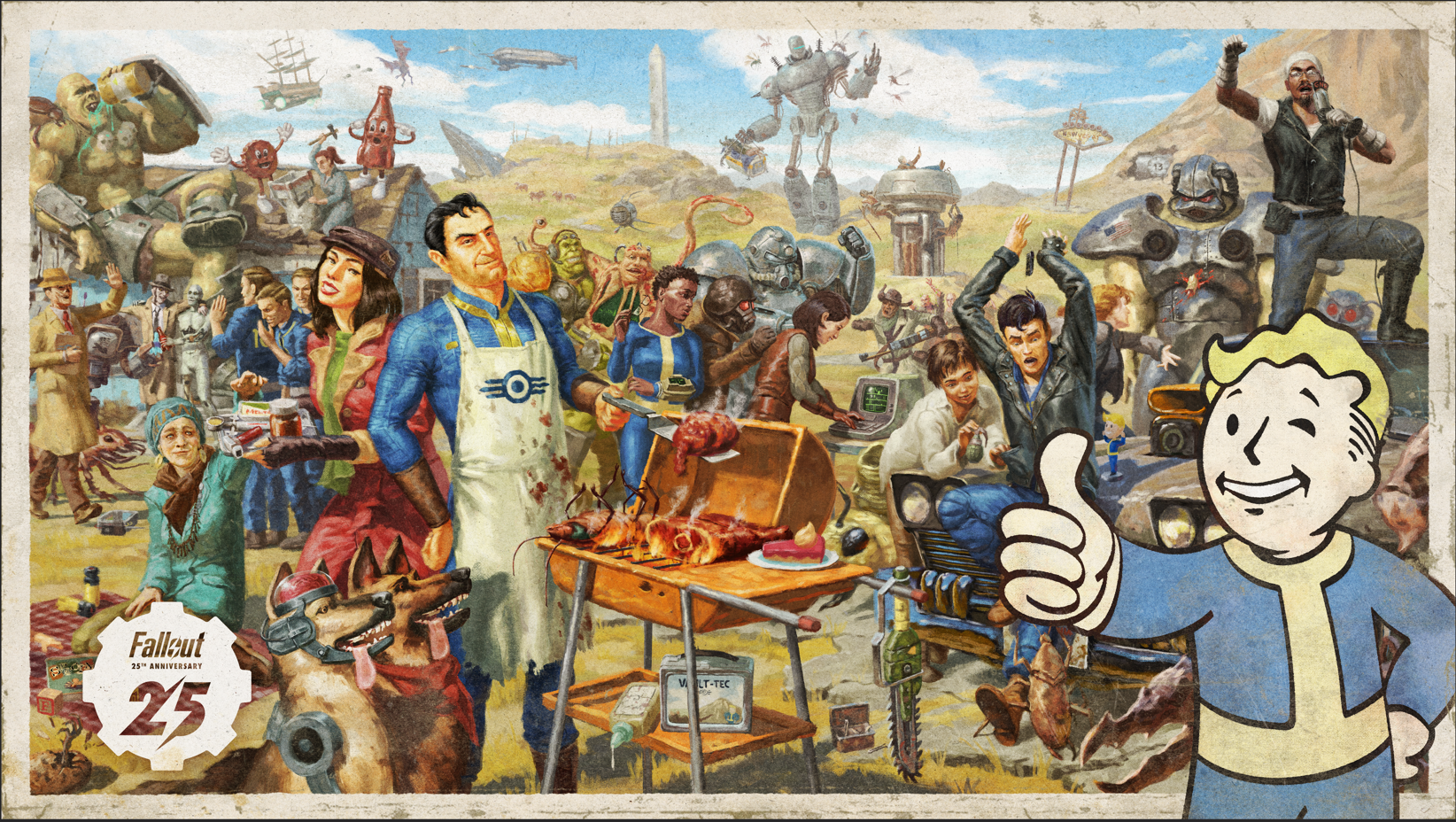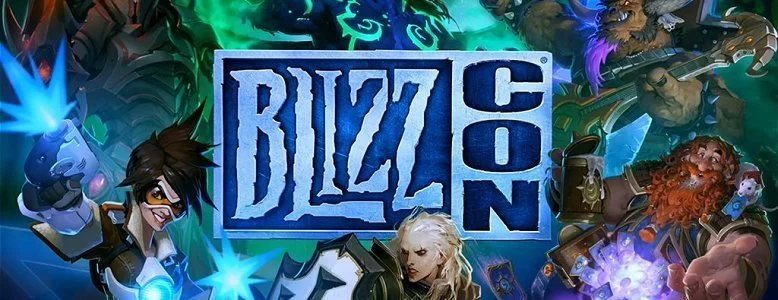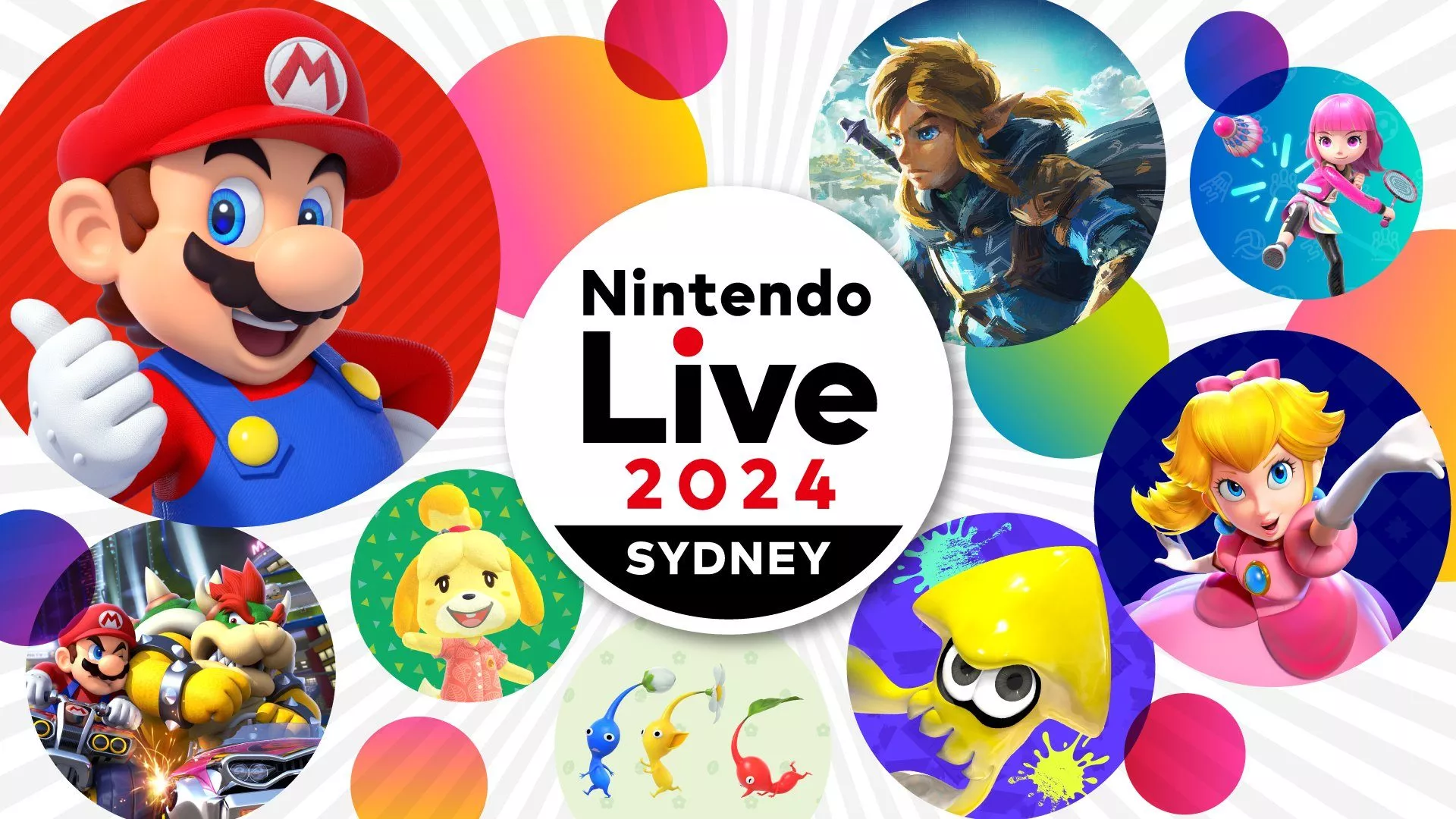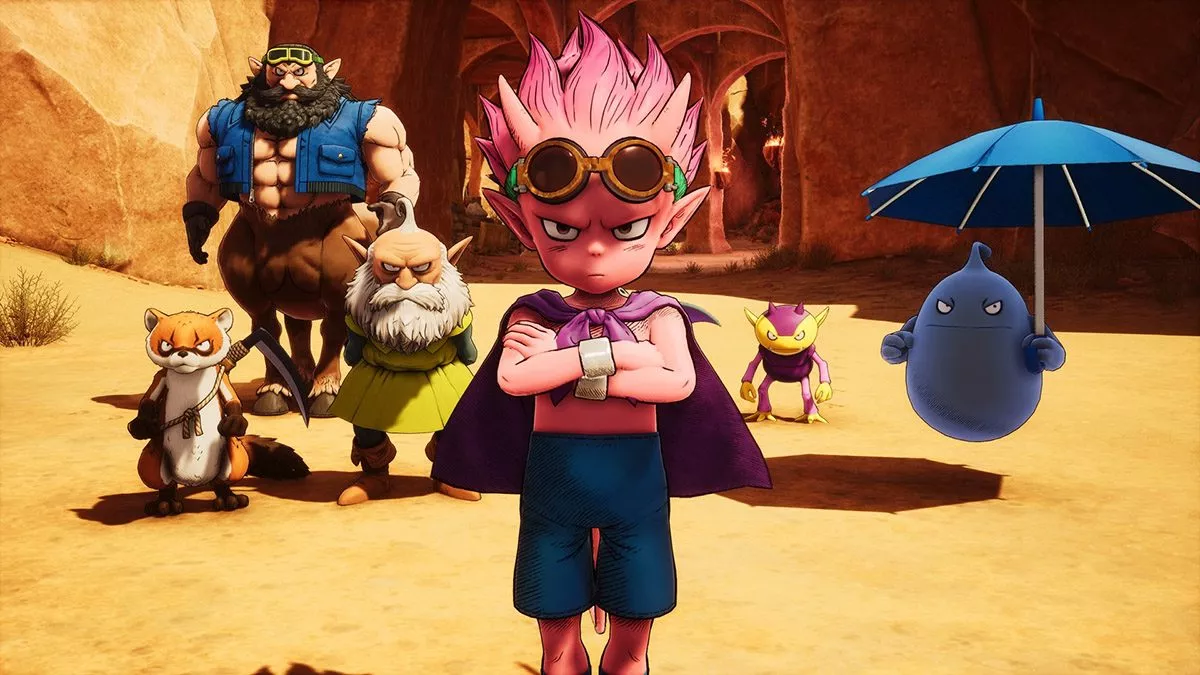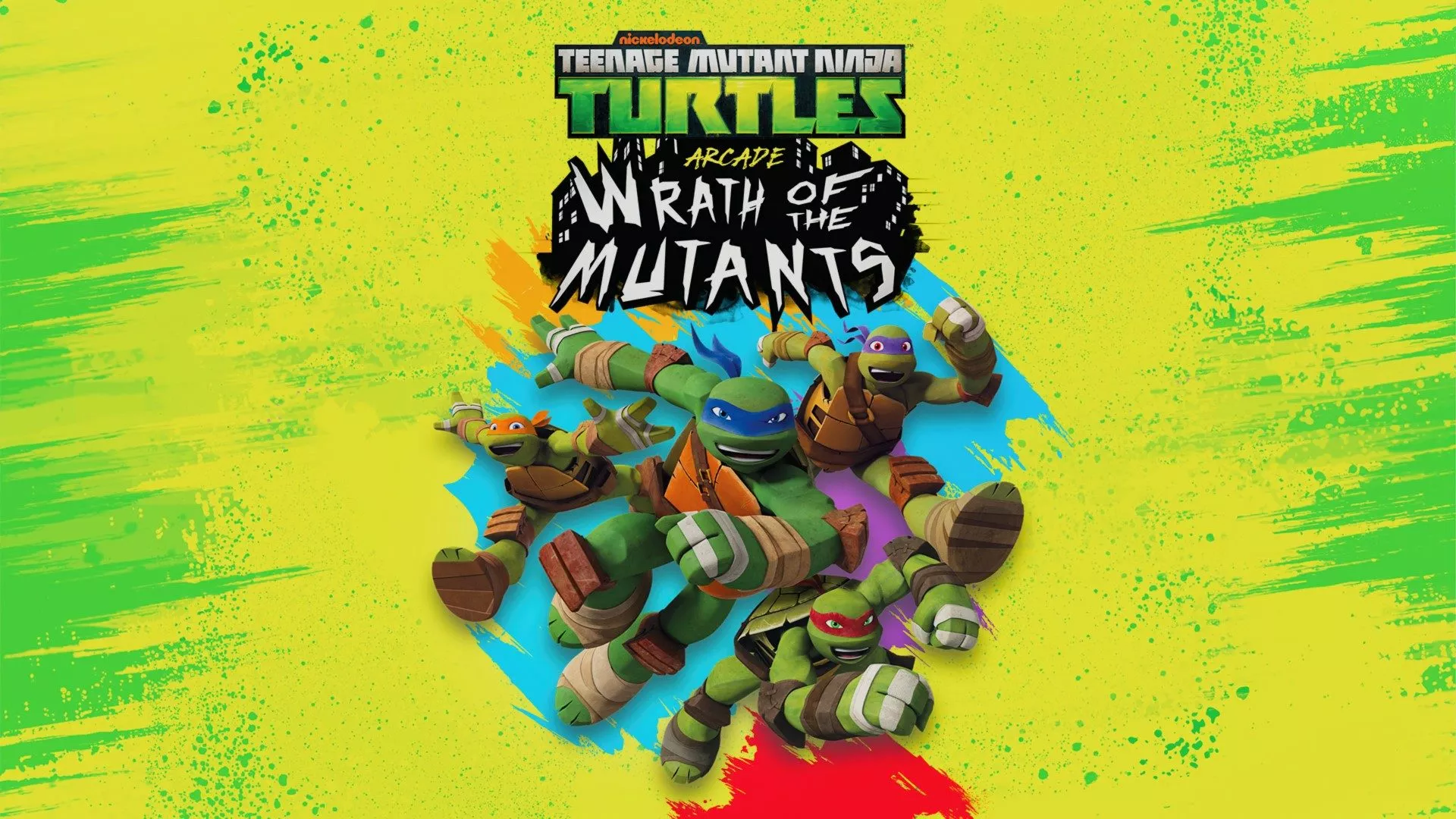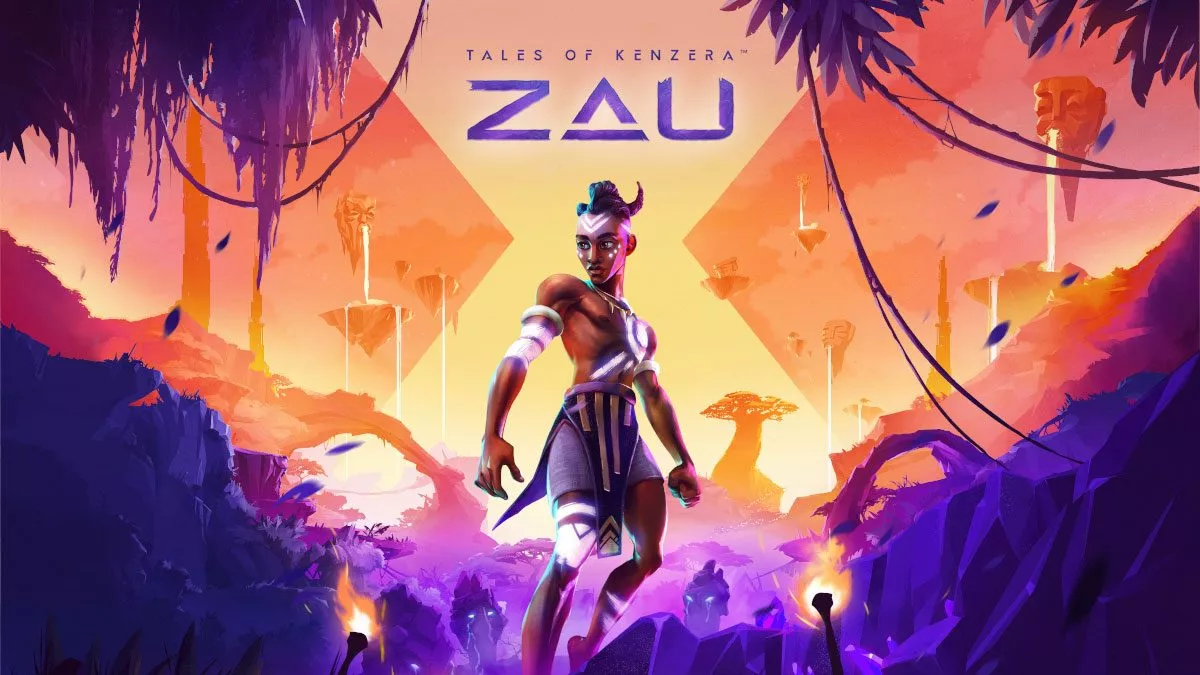Microsoft versus Sony, Battlefield versus Call of Duty and Forza versus Gran Turismo. These are some of the rivalries that can get people talking about console wars. “Game On or Game Over” is your place to get inside the minds of Nicholas and Andy as they seek to find the true meaning of gaming and tackle some of gaming’s most controversial subjects. Both are award winning authors – although the awards haven’t been mailed or created yet — but trust them. Would they lie to you?
Nicholas: With the discussions we’ve been having over the past fortnight, there’s something that has been on my mind for the last few days. While a lot publicized reviews and opinions on games comes from writers and journalists, that doesn’t mean they are the only group voicing their opinions about our favourite pastime. Social media sites and blogs are constantly filled with chatter amongst not just the media, but gamers too about the latest title to be released or what’s recently been released. This made me think.
With every new teaser trailer that’s released there’s an influx of comments from gamers about what features they want to see and which ones they don’t. When the game is finally released to the market, gamers always talk about what features they wanted to see and whether or not the developers have delivered on them.
Now you and I have our similarities, but we’re also different. For yourself, with your favourite franchise/genre, what is the one thing you see developers failing to do or include that you really want to see in a game?
Andy: Before I answer that question, I just want to lay a little ground work first. I want to let people know how we write these articles. You and I live in completely different countries and have never met each other – actually I don’t think we’ve ever talked on Xbox LIVE even. One of us comes up with a topic and emails the other then we basically play a game of email tag back and forth until the article is done. This usually takes a couple days because of time zones and response time etc. Why is that important? Because I received the start of this article as I was leaving for work and didn’t really know how I was going to respond to it. Yet, because I was thinking about it throughout the day and watching my Twitter feed pump out gameplay video after gameplay video for upcoming games I now know how I am going to respond.
For me this answer is actually extremely simple, but difficult because it’s so easy and we tend to over think things. The one thing that developers are failing to do right now in my opinion is… let the game be a mystery. Letting gamers actually play a game and discover things, find interesting places, meet mysterious characters and just experience the game in its truest sense. Anyone who knows me or has read our articles knows I am all about the experience of playing a game. Yet, in the age we live in right now it’s all about marketing, trailers, hour long gameplay videos, development diaries, character breakdowns, the list goes on and on. It seems like almost all the information about a game is vomited out before its release that we are left going through the motions. I want to be very cautious with how I say this because I don’t want to spoil anything for anyone. Watch_Dogs is a great example of this. There were a couple trailers prior to the release of the game that once you started playing you already knew who a couple key characters were. Instead of a “Holy sh*t!” moment, I was left with a “Oh, that was obvious.” Strictly because of the pre-release stuff I had seen.
I am to the point with this where I am legitimately avoiding everything I can for games I am looking forward to. Three games in particular, Far Cry 4, Dragon Age Inquisition and Assassin’s Creed: Unity. I’ve done the opposite of what they want me to do, I’m avoiding those trailers, interviews, dev diaries and the like because I want to play the game myself, not knowing what’s going to happen or who I’ll meet beforehand. I know that’s probably nowhere near the answer you were expecting, but I feel that strongly about it. Maybe it’s me just wanting to be the gamer I was when I was a kid and being surprised at what I was doing in a game. Do you think it’s a case of developers wanting to put out that much information, or are they doing it because <insert other company> is doing it so they have to just to compete? How do you treat all that pre-release information that’s so readily available now?
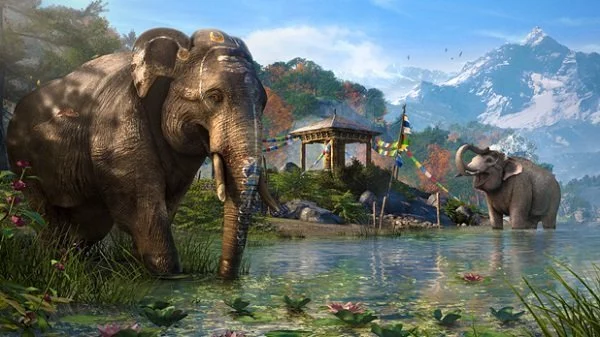
Nicholas: No, I completely agree with you there and the best example of this for me is with the soon to be released Pokémon Omega Ruby/Alpha Sapphire. It’s not unknown that I’m a massive Pokémon fan – I’ve been playing them since the very first series and I’ve loved pretty much each title to this day. Now as much as I used to love finding out tidbits of information when I was a younger gamer, I’m hating the fact that each second day I see new news about these two games on Facebook or Twitter. New mega-evolutions are posted essentially daily to the point that it’s ruining the surprise for when the game finally launches. I completely understand the case of not wanting to leave gamers in the dark, but like you’ve said, a little surprises come launch would be nice. Just saying.
For me, I’d love to see developers of racing games stop putting such a massive emphasis on supercars and hypercars. There have been so many racing titles released over the past 10 years where the roster always revolves around high-end European exotics to the point that they’ve all become… dare I say, boring? In 2003 it was awesome to see a Lamborghini or Ferrari because they were so uncommon, but nowadays they are as common as Toyota Corollas are in real-life. Hell, the second car you’ll own in Forza Horizon 2 is a Ferrari! As someone who loves cars and who owns and drives a sports car, I’d like to see games that are more in-line with what’s realistic. People like racing around in their Nissan Skyline R34s and Mazda RX7s – so if racing games could shift the focus back to sports cars and street racing (which make no mistake, can be blisteringly quick), that’ll be great.
To answer your question however, and as I alluded to above, I think it’s because they don’t want gamers to forget about their game while it’s in development. I remember quite a lot of chatter online from people who had ‘gotten over’ the hype of Watch_Dogs after it was delayed and then nothing was said about it for some time. Driveclub was similar in that people thought it was going to be a complete flop after it was delayed so much with little updates on what was going on (funny how that turned out, hey?) While it’s certainly a trend right now that we’re seeing (that is, the overload of information), I think it’s just the way developers want to let gamers know that everything is on-track and progressing along. Let’s also not ignore the fact that there are a lot of people who are just lapping up these 7 minute to one hour long gameplay reveals. It mightn’t be for you and I, but there are some people waiting on bated breath for the latest trailer.
To return to my original question, I’d like to flip things around if I may. We’ve each identified something we’d like to see developers do less, but what about things they are doing right? Is there anything in-particular that you’ve noticed developers doing lately that you’d like to see continue?
Andy: For me, probably the biggest thing developers are doing right to increase my enjoyment of a game, is getting me out of the linear hallway. It’s becoming increasingly less common to have a game where there is only one way you can go. You know those games where there’s a hallway/corridor and a hallway to the left with a small stack of suitcases or boxes in front of it and you can’t get over it. It’s always puzzled me that as resilient as the main characters are, no matter how powerful they are, they can’t conquer a three foot pile of boxes. That always frustrated me and seemed like a shortcut programing wise.
Now, it seems like there is a conscience shift of developers to give gamers that open world experience. Sure, there will still be some areas of the map we can’t get to, or the occasional invisible wall that can’t be passed. But, I love standing in one spot, looking around and saying “Hey, I want to go that way.” and just wander off, regardless of the main story. I remember Todd Howard when talking about Skyrim saying, “If you can see it, you can get to it.” Boy did I spend a lot of time aimlessly walking around in that game. Yet, that was some of the most fun I have had in a game. Exploring, finding a cave and going into it with no idea what was in there. I fully understand there will occasionally be a time in a game where we need to go to one location pronto, and our choices will be reduced, but the more time I can decide where I go, the more invested I am. Or baring a true open world, at least let me have different ways to accomplish a mission. With Splinter Cell: Blacklist for example you could do levels all Ghost or just go in guns blazing. Choice is never a bad thing.
How about you though? Are you seeing a trend that you really like, or even more specifically one developer that you think has it nailed down and “gets it”, that really understand what gamers are looking for and are delivering it every time?
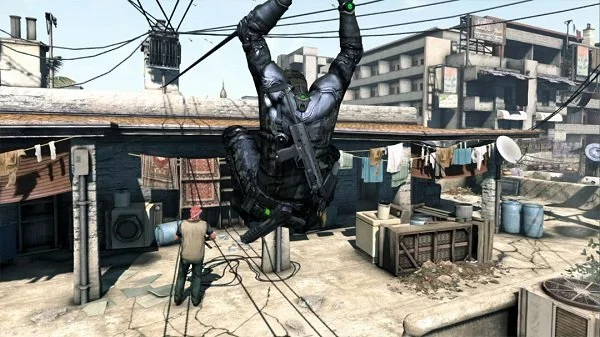
Nicholas: I asked you that kind of question before thinking it would be relatively easy to answer myself, but the more I think about it, the more difficult it is to come up with an answer. I’ve played some great games recently, but it’s tough to suggest that any one developer has gotten everything ‘right’. I loved Wolfenstein The New Order, and the gun-play was easily accessible and fun, but did it necessarily ‘nail’ anything? I’m not sure. It’s certainly an enjoyable game and I’d recommend it to anyone, but nothing stands out to me as worthwhile to your answer. I then thought about Assassin’s Creed 4 and how all the collectibles are easy to obtain because they are marked on the map, but then I reminded myself that there’s 100 individual items scattered across each island in the world and how getting each one is a giant hassle. So I guess that’s out.
I’m sure if you asked me this question a few weeks later I’d say Forza Horizon 2, but I’ve not really played it that much yet. For me, the last time I felt a developer really, and I mean really, got a game right was with Forza Horizon (surprise, surprise hey?) I spoke above about how I wanted a game to focus more on sports cars and not supercars, and for me this game did it. Horizon really captured that fine balance between having a fun racer and an equally fun driving title. The physics were fantastic – not too heavy and not too weightless – the cars looked great, there was a wide selection of customization options should you wish to use them, and there was an impressive variety of cars to pick from. No longer did I need to unlock the Lamborghini and stick with it for the entire game, but I could have upgraded my Mazda RX7 and just played with it – and that’s exactly what I did. For each race I completed I would spend as much time, if not more, cruising around and drifting. It was the last time I felt a racing game truly encapsulated the joys of just getting into a car you loved and driving it somewhere.
All this talk of what developers do right and where they fall short makes me think of every time a review is written. With Stevivor for example, each one of our reviews includes a positives and a negatives section at the end, and it’s a similar style used by many other websites and publications too. Do you think this feedback is ever fed back (see what I did there?) from publishers to developers, or perhaps publishers take it onboard themselves to see what the market wants? Going even further, which do you feel is more valuable – media reviews or comments on forums/social media? If what needs to be improved is sometimes so clear-cut, what do you think stops developers from releasing a 10/10 game the next time around?
Andy: I do think developers pay attention to reviews and other forms of feedback, such as message boards, Twitter, Facebook and emails. Either directly (they search it out and go through it) or they have a Community Manager or other staff member go through it and bring back things that are common themes that show up often. Once they get that information though, there is a whole lot they can do with it. For instance say Developer X makes a game and there is one instance that gamers are really complaining about as being really difficult and frustrating. On one hand they could look at it and say “Perfect, that’s what we were going for.” and simply move on, leaving fans to keep complaining about it. They could also say the same thing, but then release a blog post or such saying, “that indeed that part is supposed to be challenging but the rewards are worth it.” Alternatively, they could always say “Oh, crap maybe that is too hard.” and adjust accordingly.
We’ve all seen a developer interview at some point talking about a feature of a game where they’ll say something like, “Fans have been requesting this for a long time and we were finally able to deliver.” That’s good, in theory. Yet at times it seems like developers try so hard to implement that much wanted feature that they lose scope of the larger game and it suffers. It just goes to show how much of a monumental task it is to make a great game. Developers really are being pulled from many different directions. They have their visions of the game, there is the publisher’s vision that makes the most capital possible, there are the shareholders demanding profit and then there are the gamers who expect a certain experience. It’s not a stretch to imagine that no developer can truly please each of those groups at the same time with one game. What may seem like us to be a clear-cut feature that should be added, may not be so clear for those who are making the game for whatever reason. Time, money, vision, etc. there will always be things that we, as gamers, will never know about the process no matter how much we think we know.
The other thing that comes into play is we use the term ‘gamers’ to describe everyone that plays a game (and rightfully so mind you). But, if you really think about it, let’s say a game sells 3 million copies. That’s 3 million different opinions on it, with 3 million different preferences. I don’t think there is any way one game can truly appease every gamer at one time no matter how good it is. I was talking to someone yesterday about games that left an emotional impact on me. One of the first ones I mentioned was Red Dead Redemption, which – in my opinion – was absolutely amazing. The person I was talking to simply said “Really? I hated that game.” I was left speechless because I think RDR is one of the best games I’ve played in the past 10 years. It really clicked that it’s much harder to please everyone with one product than we think it is.
Put yourself in the shoes of a developer for a moment. You are making the next biggest and bestest AAA title. You sit down at the table for a planning session to map out the game, story, features, etc. On one side of the table you can make an ultra-refined game that has a feature a very vocal group has been clamoring for. It’s sure to please them and they’ll love it. On the other side of the table is a less refined game that is more approachable for a broader spectrum of gamers. You don’t have the time or money to do both, you can only pick one or the other. Which do you choose?
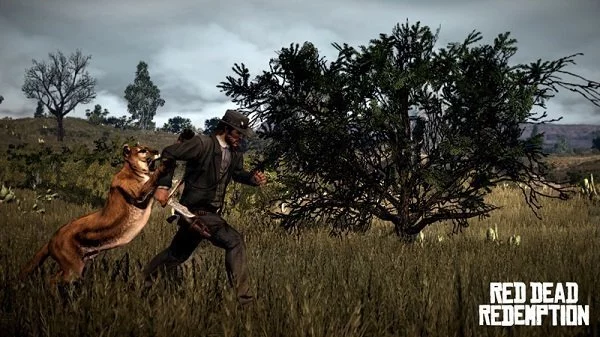
Nicholas: For me, this will depend on whether it’s a new IP or a sequel. Let me elaborate. Assuming sales figures are irrelevant, if I’m working on a new IP then I’ll want to entice as many gamers as possible to my game. I’d like to make sure each of the elements are accessible to all gamers and hopefully developed to a point that shows good build quality. My intention here would be to establish a fan base and use their opinions and recommendations (or at least the re-occurring ones) on how to improve the game going forward – be it expansions or DLC.
This feeds on to the alternate situation – sequels. Once again, assuming sales are irrelevant, I’d like to make something that’s refined and aimed and pleasing the fans that made the sequel possible to begin with. A problem I’ve seen with far too many games is that they try to cater to too many fans, and what ends up happening is that those who were actually excited for the game are left disappointed, and those who didn’t care still didn’t buy it. Case in point – the MotoGP franchise. It’s a niche form of motorsport and because they want to boost sales they continually introduce elements that prevent it from being truly great. The end result game is something that doesn’t really please the fans and which doesn’t entice newcomers either. It’s essentially lose-lose.
Assuming sales were important, which they ultimately are when developing a game, the creators really need to be mindful of who their target audience is, and if they’re trying to improve the fan base, what the likelihood of making the game more accessible will do to achieve that. Popular franchises like Mass Effect and Dead Space have that freedom to be a little more accessible without completely ruining the fan’s experience, but as we saw with DS3, it’s risky. With those niche games though, if a game isn’t made entirely for the fans and they need to tone down the fan experience to appeal to a wider audience, then I question the reason for making it is in the first place.
To end things off this week, I’d like to pose your question to me, back to you. Furthermore, I’d like to also consider that if you had full reigns to create your own game, what are some of the elements you’d include and what would you definitely avoid? What genre and gameplay would you throw in? Finally, if a game had all the ‘best bits’, would it turn out to be something amazing, or a mess like the ‘Homer’ car was in The Simpsons?
Andy: For starters it would definitely be an RPG, knowing what types of games I love it would most likely be a post-apocalyptic setting. Certainly borrowing some elements from Fallout, but with choices and actions having a much greater impact on the world. One thing about most RPGs is the game, at times, feels overly scripted. I’d love to play a game that doesn’t feel scripted. Completely open world, do what you want in the order you want, however you want type of thing. Realistically I know a game like that would be insane to build due to all the bugs you’d have to filter out during testing. I remember reading an article awhile back on open world games and how each possible choice the player can make is a possibility for a bug to pop up. When you start stacking the ability of the player to have 4 choices and then make 8 choices after that the numbers add up in a hurry.
Like you touched on above, I’d want the game to appeal to a certain segment and be made for them. Those players that love a long game, that are invested in the experience and want to play something that will challenge them gameplay wise, but emotionally as well. Yet, I’d also try to entice other players as well. Maybe with a few setting options to increase the approachability of the game, but the basic fundamentals of the game would not be changed from the vision. It would stay true to itself. Of course there-in lies the issue doesn’t it. In our heads, each of us can design what we believe would be the perfect game. A game that we ourselves would love to play. However, the reality is, our ideas and what we think make a great game could turn out to be utter garbage once it’s made. A great idea in theory may turn out to be the next colossal disaster in the gaming world.
Anyone who has ever played a video game can understand that the process behind making one is anything but easy. It’s easy for us to sit back, play a game, and then pound out on a keyboard what’s awesome about it and the things that should have never made it into the game. It’s easy for us to second guess every design decision, lament every bug and glitch and then follow it up with some sensational one-liner about how a group of first graders could do better. The grand idea that I’d want added to my favorite game may have been removed during development because it was crap or had unintended consequences. The fact is the people that make these games do the best they can, and are always under pressure to get it done and shipped so they can make money and start their next project. It’s fair for us to express our opinions of what we play. We have to understand that opinions are like belly buttons, everyone has one but each are different. I don’t think it’s possible to please every gamer with every game, but as we’ve seen with the plethora of games being released, developers are shy of trying. As long as the game I play is fun, you can’t really ask for much else.
Tune in next time for the next instalment of Game On or Game Over. If you have any ideas for our next article, feel free to contact Andy or Nicholas on Twitter.
This article may contain affiliate links, meaning we could earn a small commission if you click-through and make a purchase. Stevivor is an independent outlet and our journalism is in no way influenced by any advertiser or commercial initiative.


